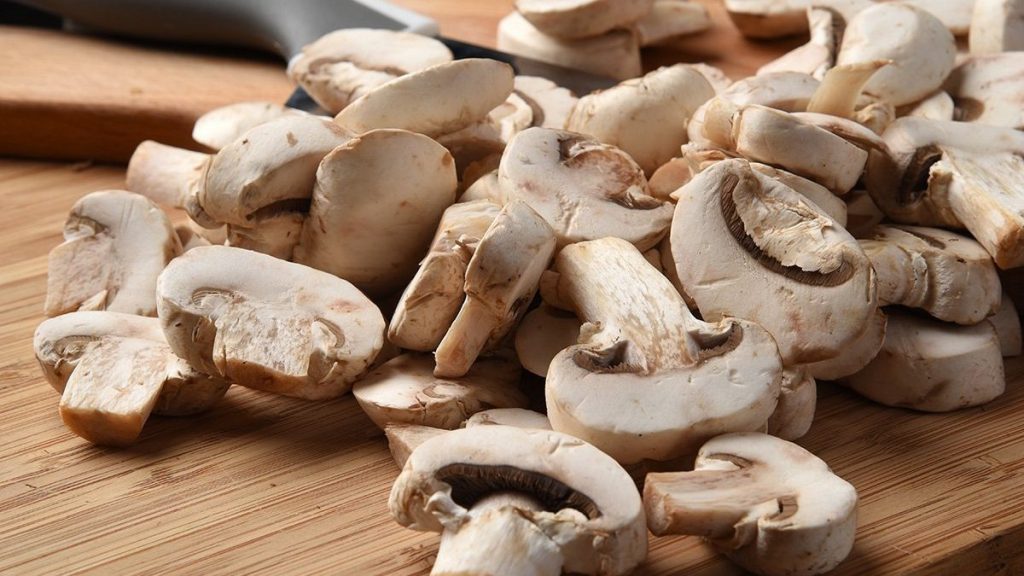
Welcome to the amazing world of mushrooms, where the humble fungi may just be the key to better health! While we often think of mushrooms as just a tasty addition to our meals, they actually have a long history of use in traditional medicine for their many health benefits. From boosting the immune system to fighting inflammation, mushrooms have a lot to offer. In this article, we’ll explore the many health benefits of mushrooms and why you might want to consider adding them to your diet. So, whether you’re a foodie or a health enthusiast, keep reading!
Mushrooms have been part of our diet for thousands of years. In this article, we are going to examine the health benefits of mushrooms. A diet that includes mushrooms can help you to boost your overall health. Mushrooms are rich in essential nutrients, including protein, riboflavin, niacin, pantothenic acid, and selenium.
They also contain B vitamins, which can help improve energy levels and reduce inflammation. Mushrooms contain antioxidants, which can help to reduce the effects of oxygen free radicals that cause oxidative damage. This can have the effect of helping to reduce the risk of developing certain cancers and chronic illnesses.
They are a low-calorie food that is perfect for weight loss. They are also an excellent source of dietary fiber. Getting enough dietary fiber in your diet can help to lower cholesterol levels and improve digestion.
Mushrooms are also rich in polysaccharides, which can help to boost the immune system and help your body fight off infection.
Some mushrooms have also been linked to improved brain function. These mushrooms contain compounds that can help to improve memory and concentration.
Finally, mushrooms are a great source of iron, which is essential for producing red blood cells. This can help to avoid anemia and improve your overall health.

Nutritional Health Benefits of Mushrooms
Vitamins and Minerals Found in Mushrooms
One of the health benefits of mushrooms is that they contain many essential vitamins and minerals. Mushrooms are packed with vitamins and minerals that can help you meet your daily nutritional needs.
Mushrooms are an excellent source of B vitamins, including niacin, riboflavin, and pantothenic acid. These B vitamins help the body convert food into energy, support healthy skin, and promote healthy hormone production.
Mushrooms are also a great source of vitamin D, which is essential for bone health. Vitamin D helps the body absorb and use calcium. It also plays an important role in immune system health.
Mushrooms are also rich in minerals such as potassium, selenium, and zinc. Potassium helps maintain normal blood pressure levels and muscle function, while selenium helps protect cells from damage and supports a healthy metabolism. Zinc is important for cognitive function, growth, and healing.
No matter what type of mushroom you choose to add to your diet you are getting a wide range of essential vitamins and minerals to help you meet your daily nutritional needs.
Mushrooms are a Healthy Source of Protein
Mushrooms are a healthy and delicious addition to any meal. They can add variety and unique flavors. What many people don’t realize is that mushrooms also contain a surprising amount of protein. Mushrooms can be an excellent source of protein for vegetarians, vegans, and others looking to increase their intake of proteins.
Mushrooms are composed of almost 90% water, but the remaining 10% is packed with protein. Depending on the type of mushroom, the amount of protein can vary. For example, a cup of cooked shiitake mushrooms contains 5.4 grams of protein, while a cup of cooked white button mushrooms contains 3.3 grams.
Not only do mushrooms contain a significant amount of protein, but the protein they contain is of high quality. Mushrooms are considered a complete protein, meaning they contain all nine essential amino acids.
Amino acids are the building blocks of protein, and the body cannot produce them on its own. Therefore, it’s important to consume foods that contain all nine essential amino acids, such as mushrooms.
Some mushrooms can be eaten raw, like the common white button mushroom. It is, however, recommended that all other mushrooms should be cooked before eating. This is because mushrooms contain chitin. It is also the substance that is present in shrimp and lobster shells. If you don’t cook them to break this substance down they can be hard on the stomach and digestive system.
Mushrooms are a great addition to salads, pasta, pizzas, and more. For those looking to increase their protein intake in a healthy way, mushrooms can be a great option. With their unique flavor and impressive nutritional profile, mushrooms are an easy and delicious way to get the protein you need.
Mushrooms are Low in Fat and Calories
Mushrooms are a delicious and incredibly versatile ingredient that can be used in a variety of dishes. But did you know they are also incredibly low in fat and calories? This makes mushrooms an ideal choice for those who are looking to lose weight or maintain a healthy diet.
Mushrooms are extremely low in calories, with a single cup of white mushrooms containing only 15 calories. The same amount of white mushrooms also contains only 0.2 grams of fat, making them an incredibly low-fat food. This makes mushrooms an ideal choice for those looking to cut calories and fat from their diet.
Mushrooms can also be a great way to add flavor to a dish without adding calories or fat. They are a great source of umami, a savory flavor that can enhance the taste of many dishes. When it comes to eating healthier, mushrooms are a great choice. If you’re looking to cut calories and fat from your diet, consider adding mushrooms to your meals.

Health Benefits of Mushrooms
Mushrooms May Help Improve The Immune System
Mushrooms have been used for centuries for their medicinal properties, but recently they have been gaining traction as a natural remedy for boosting the immune system. Mushrooms contain various compounds known for their immunoprotective and anti-inflammatory properties, making them a great addition to any diet.
First and foremost, mushrooms contain polysaccharides, which are long-chain carbohydrates that act as a natural source of prebiotics. Prebiotics are known to stimulate the growth of beneficial bacteria in the gut, which in turn helps to support the body’s natural defense against disease-causing agents.
Mushrooms are also rich in beta-glucan, a type of polysaccharide that has been shown to enhance the activity of immune cells, increasing their ability to fight infection.
In addition to their polysaccharides, mushrooms are also a great source of vitamins and minerals. Vitamin D, for example, plays an important role in immune health, and mushrooms are one of the few natural sources of this essential nutrient. They are also a great source of selenium, zinc, and copper, all of which are important for healthy immune function.
Mushrooms have also been shown to have anti-inflammatory properties. This is due to their high concentration of antioxidants, which help to reduce inflammation and protect the body from damage caused by free radicals. By reducing inflammation, mushrooms can help to improve overall immune health.
Finally, mushrooms are also a source of natural probiotics, which are beneficial bacteria that help to improve the balance of good and bad bacteria in the gut. This helps to support the body’s natural defense system, as well as the absorption of nutrients.
With their high concentration of essential vitamins and minerals, prebiotics, antioxidants, and probiotics, mushrooms can help to protect the body from disease-causing agents and support overall health.
May Help Prevent Cancer
Mushrooms have been revered for their health benefits since ancient times, and new research is beginning to show that consuming mushrooms may have the potential to help prevent cancer. While more research is still needed to understand the full effects of mushrooms on cancer prevention, some studies have found that consuming certain types of mushrooms can help reduce the risk of certain cancers.
One study from China in 2009 found that consuming mushrooms could reduce the risk of breast cancer in women. The study involved over 1,000 women and found that those who consumed mushrooms had a lower risk of breast cancer than those who did not. The protective effects were especially prominent in women who ate mushrooms more than three times a week. When combined with the intake of green tea the effects were even stronger. The researchers concluded that more studies are needed to identify the mechanisms and constituents in mushrooms and green tea that cause the effects.
Another study published in the journal Cancer Epidemiology of over 36,000 Japanese men found that consuming mushrooms can also reduce the risk of prostate cancer. The study found that those who ate mushrooms at least three times a week had a lower risk of prostate cancer.
Some mushrooms are a great source of selenium, which is an essential mineral that helps protect the body against oxidative damage. Oxidative damage is believed to be involved in the development of some cancers.
Although more research is needed to fully understand the effect of mushrooms on cancer prevention, the current evidence suggests that consuming mushrooms regularly may help reduce the risk of certain cancers. For those looking to include more mushrooms in their diet, some of the best varieties to choose from include shiitake, oyster, maitake, and button mushrooms.
May Help Reduce Inflammation
Some studies show the potential of mushrooms to help reduce inflammation in the body. In fact, mushrooms are one of the few foods that contain essential amino acids, which are the building blocks of proteins. This makes consuming mushrooms a great way to get the essential nutrients needed to fight inflammation.
One of the key compounds in mushrooms is an antioxidant called ergothioneine, which has been found to have strong anti-inflammatory properties. In one study, people who consumed mushrooms daily showed lower levels of inflammation markers in their blood than those who did not eat mushrooms.
Mushrooms are also high in polysaccharides, which are long-chain carbohydrates. These polysaccharides have been found to have anti-inflammatory and immune-boosting properties.
Mushrooms are a great source of vitamin D, which is an important nutrient for a healthy immune system. Vitamin D helps reduce inflammation and has been linked to a lower risk of certain chronic diseases.
Eating mushrooms can also help increase the body’s levels of glutathione, an important antioxidant that helps protect the body from damage caused by free radicals. Glutathione helps reduce inflammation and has been linked to a lower risk of certain chronic diseases.
Finally, mushrooms contain beta-glucans, which are polysaccharides that have powerful anti-inflammatory and immune-boosting effects. In one study, people who consumed mushrooms daily had lower levels of inflammation markers in their blood than those who did not eat mushrooms.
Overall, consuming mushrooms on a regular basis can be a great way to reduce inflammation and improve overall health. Not only are mushrooms a great source of essential nutrients, but they also contain powerful antioxidants, polysaccharides, and beta-glucans that can help reduce inflammation in the body.
May Help Support Digestive Health
Mushrooms have been used for centuries for medicinal purposes, including for digestive health. Recent research has indicated that consuming mushrooms may be beneficial for supporting the digestive system. These findings suggest that mushrooms may be a good source of natural digestive support.
Mushrooms contain a range of compounds that can help support the digestive system. For example, they are a good source of dietary fiber, which is essential for maintaining a healthy digestive tract. Fiber helps to keep the gut healthy by promoting regular bowel movements and reducing constipation.
Mushrooms are also a source of prebiotics, which can help to feed the beneficial bacteria in the gut. This helps to maintain a healthy balance of gut bacteria, which is important for optimal digestion.
Mushrooms also contain a range of compounds that can help to reduce inflammation in the gut. Inflammation is a major cause of digestive problems and can lead to symptoms such as abdominal pain, gas, bloating, and diarrhea.
Mushrooms contain antioxidants and anti-inflammatory compounds that can help to reduce inflammation in the gut and improve digestive symptoms.
Mushrooms are a good source of vitamins and minerals that can help to support digestive health. For example, they are a rich source of B vitamins, which are essential for proper digestion. They are also a source of minerals such as selenium and zinc, which are important for maintaining a healthy gut.
Conclusion
In conclusion, mushrooms are a highly nutritious food source that offers a wide variety of health benefits. They are a good source of dietary fiber, protein, B vitamins, calcium, zinc, and iron. They also contain antioxidants, polysaccharides, and enzymes that can help lower cholesterol, fight inflammation, and boost the immune system. Additionally, mushrooms may help reduce the risk of certain types of cancer and have been found to have antiviral properties. All in all, mushrooms are a nutritious and delicious way to add some health benefits to your diet.
For more articles about the health benefits of natural plants be sure and check out our blog.
FAQs:
Q: What vitamins and minerals can be found in mushrooms?
A: Mushrooms are a good source of various vitamins and minerals, including B vitamins, selenium, copper, potassium, and vitamin D (when exposed to sunlight). Some mushrooms, such as shiitake and maitake, also contain beta-glucans, a type of dietary fiber that may have immune-boosting effects.
Q: Can mushrooms be a good source of protein?
A: Yes, mushrooms are a healthy source of protein and are particularly rich in the amino acid, ergothioneine. While the protein content of mushrooms is not as high as that of animal products, they can be a great addition to a balanced vegetarian or vegan diet.
Q: Are mushrooms a low-fat and low-calorie food?
A: Yes, mushrooms are low in fat and calories, making them a great option for those looking to reduce their calorie intake or maintain a healthy weight. One cup of raw mushrooms contains only about 15 calories and less than 1 gram of fat.
Q: Can mushrooms help improve the immune system?
A: Yes, some studies suggest that certain types of mushrooms, such as shiitake and reishi, may have immune-boosting properties due to their beta-glucan content. Additionally, mushrooms contain various antioxidants that may help reduce oxidative stress and inflammation in the body.
Q: Can mushrooms help prevent cancer?
A: Yes, some studies suggest that certain types of mushrooms, such as shiitake and maitake, may have anti-cancer properties. This may be due to their beta-glucan content or other bioactive compounds found in mushrooms. However, more research is needed to fully understand the potential anti-cancer effects of mushrooms.
Q: Can mushrooms help reduce inflammation?
A: Yes, some studies suggest that certain types of mushrooms, such as oyster mushrooms, may have anti-inflammatory effects due to their high antioxidant content. This may make them a beneficial food for those with inflammatory conditions such as arthritis.
Q: Can mushrooms support digestive health?
A: Yes, mushrooms are a good source of dietary fiber, which can help promote digestive health and regularity. Additionally, some types of mushrooms, such as shiitake and maitake, may have prebiotic effects, which means they can help promote the growth of beneficial gut bacteria.